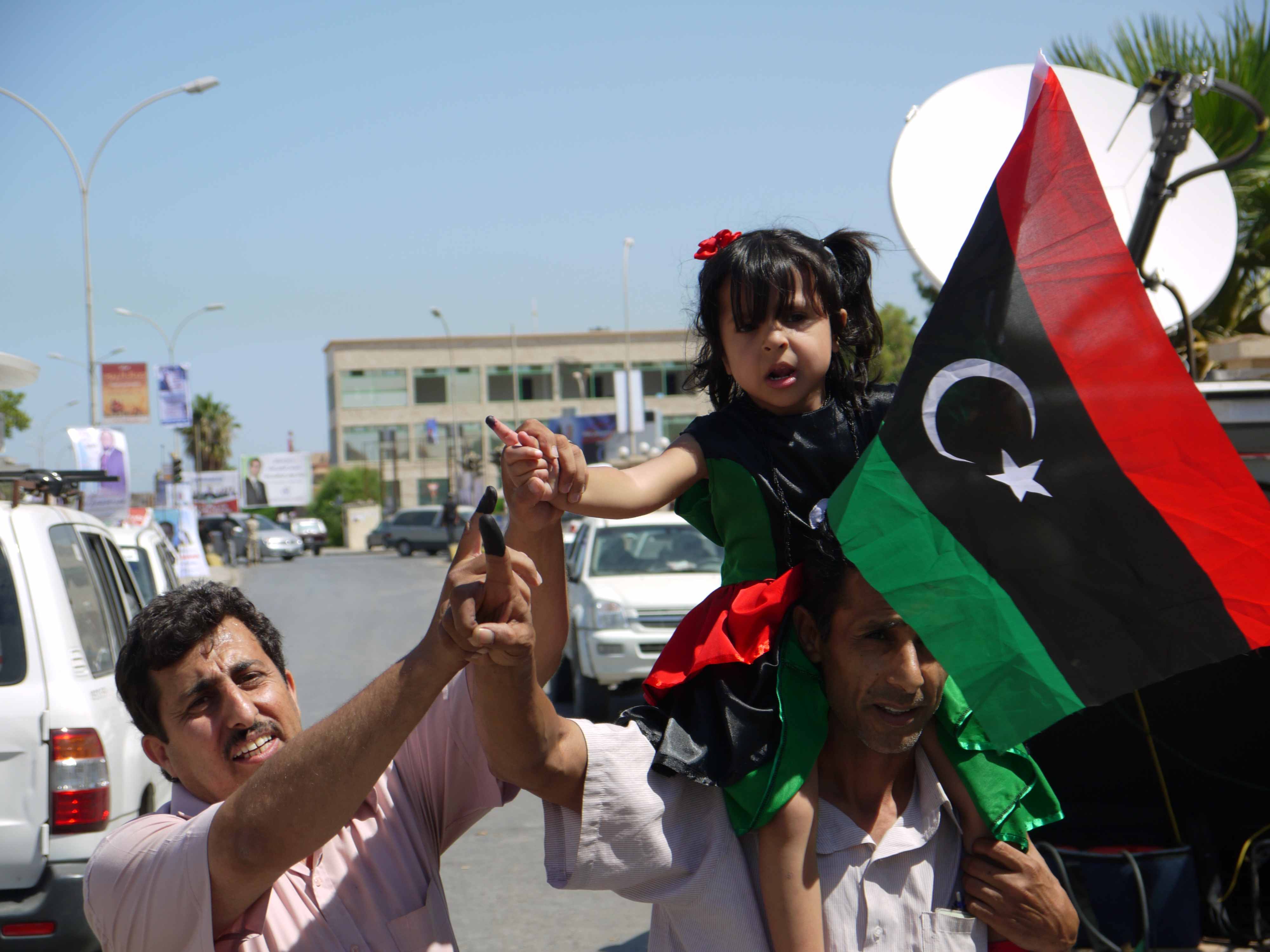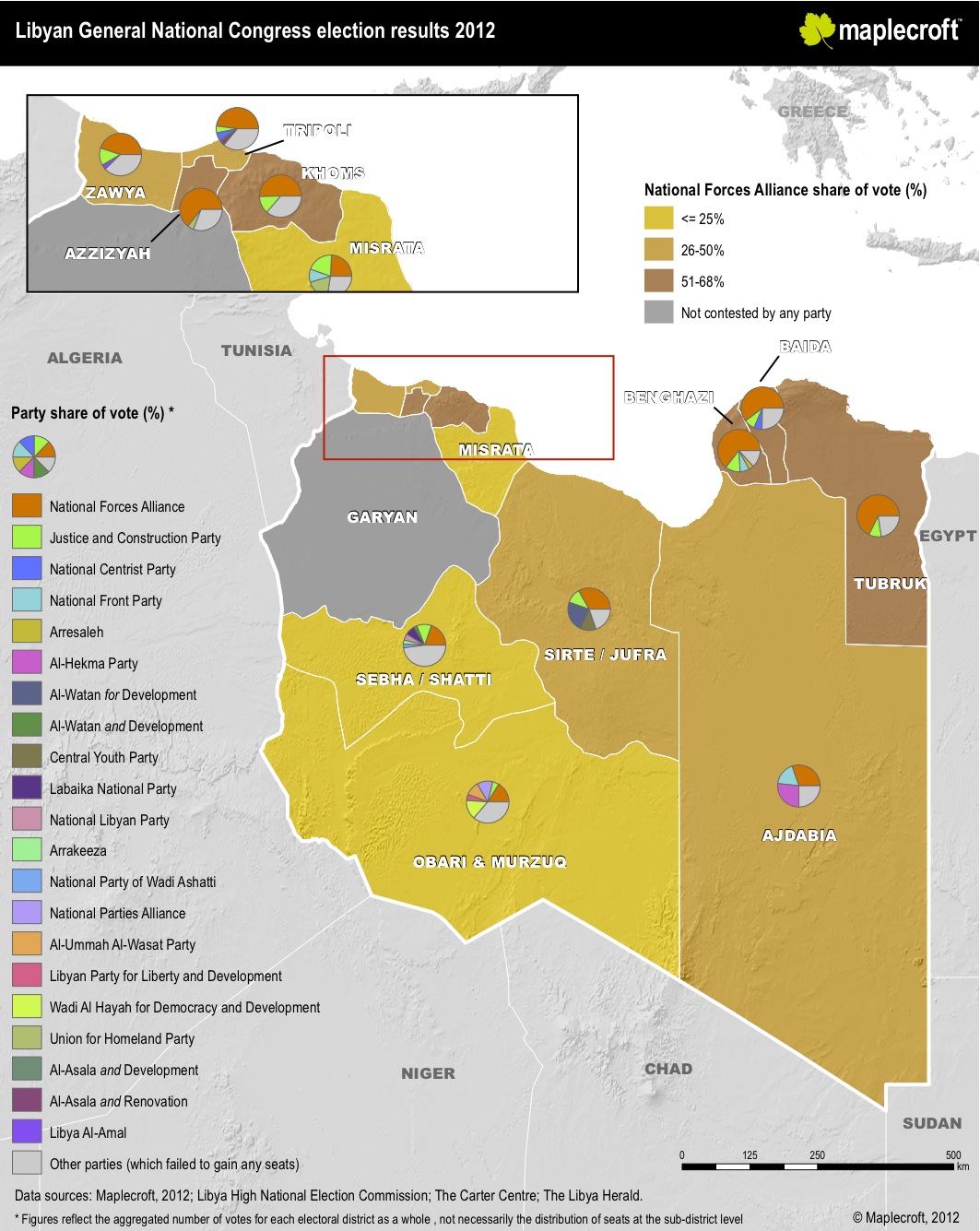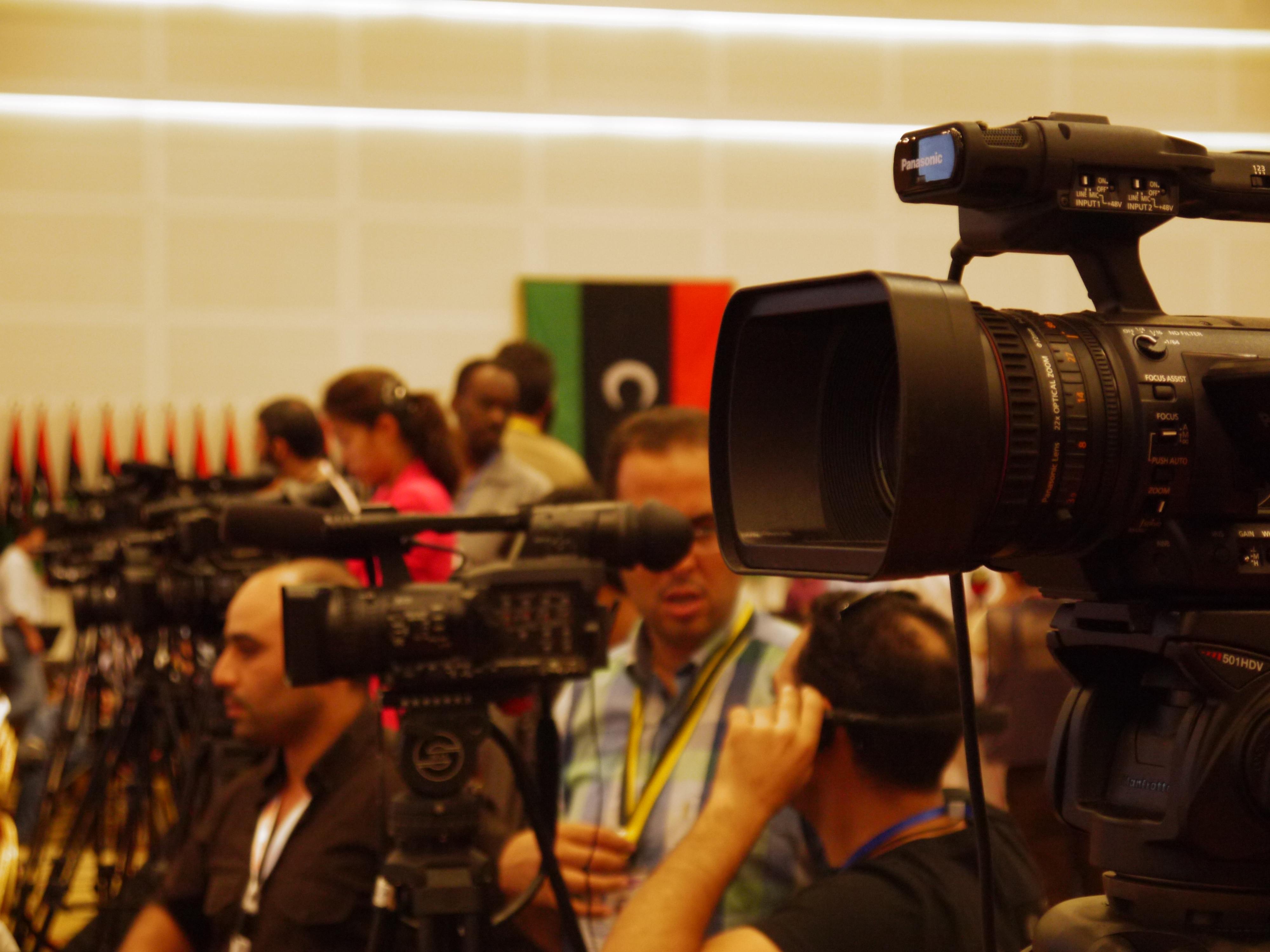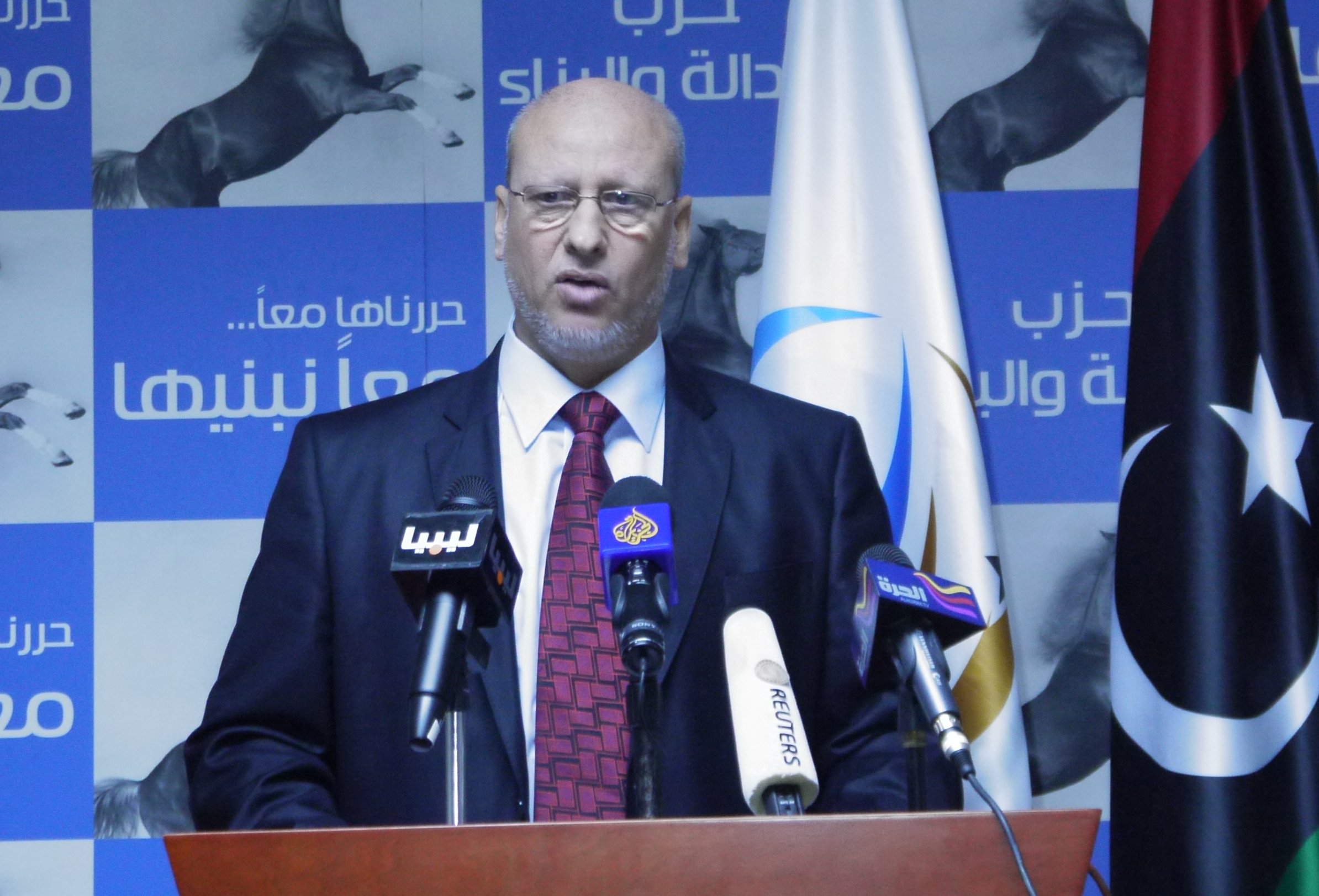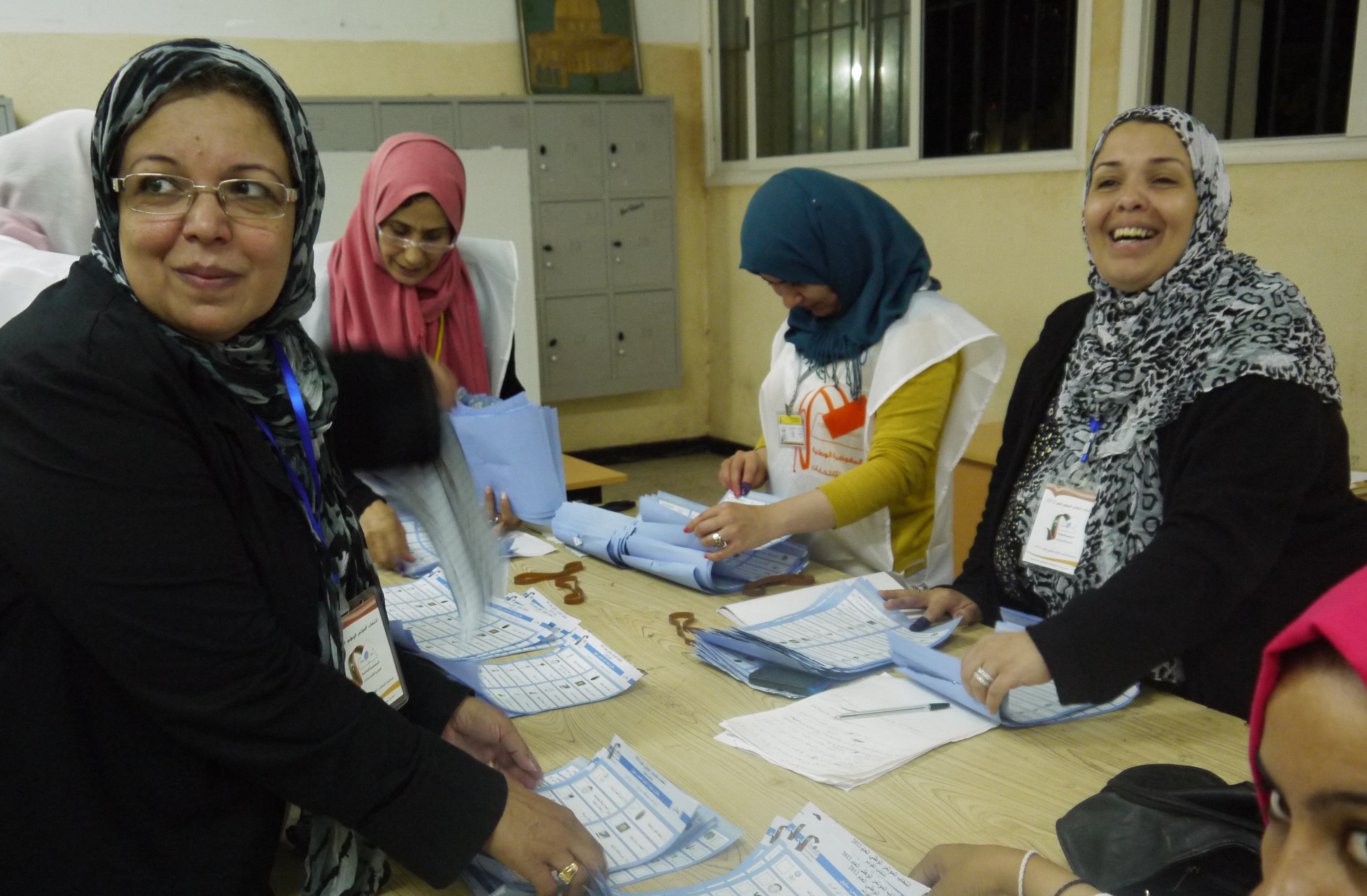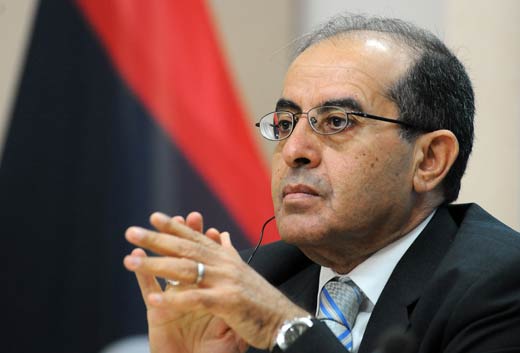By George Grant and Michel Cousins.
Benghazi and Tripoli:
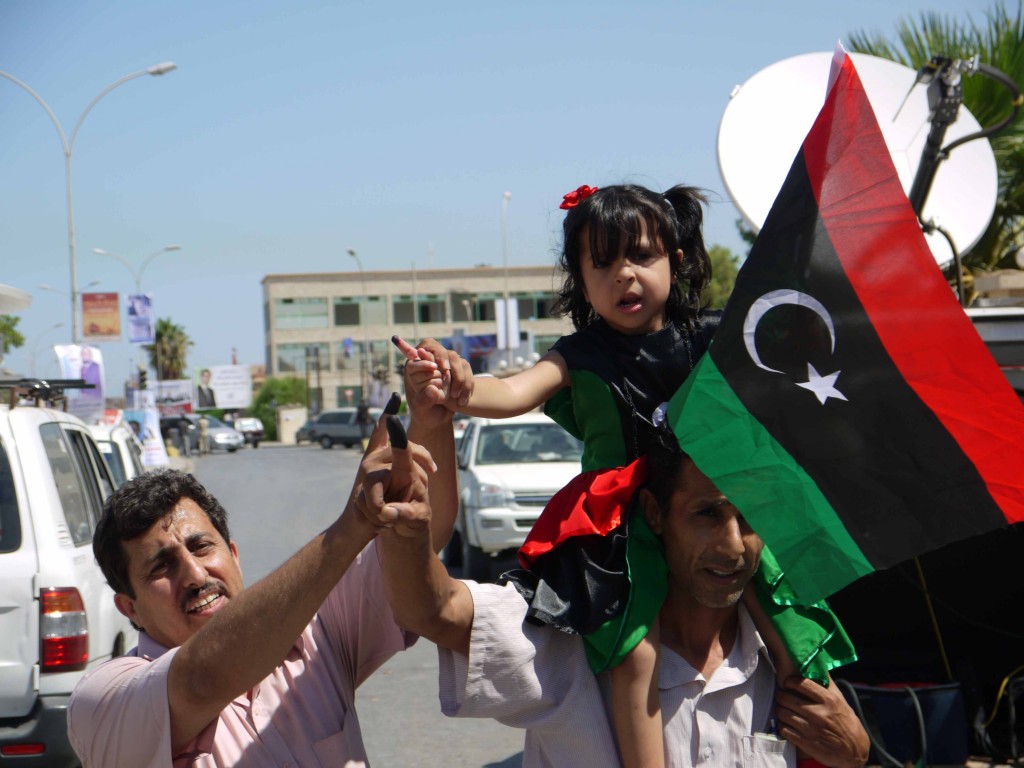
Mahmoud Jibril’s National Forces Alliance (NFA) looks set for victory in Libya’s historic National . . .[restrict]Conference elections, the Libya Herald can reveal.
Early indications from both Tripoli and Benghazi suggest the NFA is comfortably ahead of any of its 130 rivals, including major contenders such as the Justice & Construction Party, the Nation Party and the National Front.
In spite of early disruptions in eastern Libya, voter turnout was respectable. Late today, HNEC head Nuri Al-Abbar said total voter turnout was 60 per cent, with 1.6 million of Libya’s 2.8 million electors having cast their vote. He added that out of a total of 1,554 polling centres across the country, 24 were unable to operate, including two in Kufra, six in Sidra and eight in Benghazi.
Initial suggestions of an NFA victory emerged from a series of unofficial Libya Herald exit polls conducted at various polling centres in Libya’s two largest cities over the course of the day.
This evening, the Libya Herald observed vote counters at the Hurriya (Freedom) voting station in Benghazi, with many if not the majority of votes appearing to be for Jibril’s coalition.
A senior official at the HNEC in Tripoli subsequently confirmed that his indicators also suggested that the NFA was out in front. “From what I’m hearing now, it does appear that Jibril is going to do the best”, the official said.
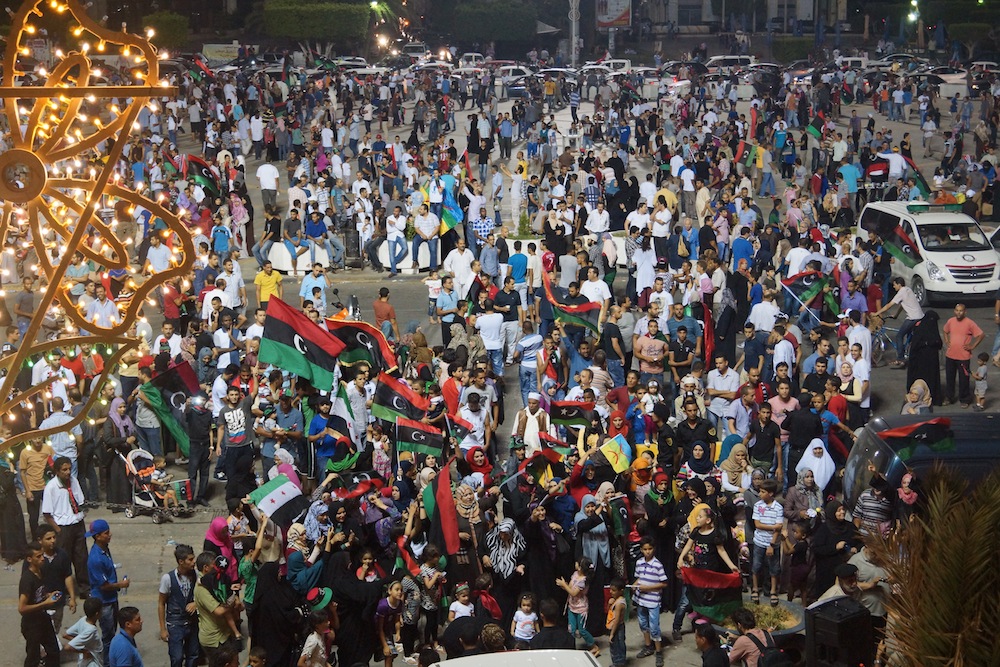
One young NFA supporter queuing to buy ice cream in the Suq Al-Juma district of Tripoli today said that she had spoken to at least 50 of her friends, with “all planning to vote for Jibril’s alliance”.
“I feel that he’s not like other politicians”, said Musab Al-Majjub, a businessman from Misrata now living in the capital. “I trust him. I think he will be able to unite all Libyans”.
However, an NFA victory would not please all Libyans. Yesterday the Libya Herald was contacted by a prominent Libyan politician who claimed that former revolutionaries had been meeting across Libya over the past few days to discuss possible action should Jibril win. He said that they had decided that action would be taken on the grounds that a victory for him would be a “theft of their revolution”.
Jibril, who served as head of the National Economic Development Board under Qaddafi, cut a controversial figure as head of the NTC’s executive office during last year’s revolution. Some Libyans believe that his past ties to the Qaddafi regime make him an unsuitable figure to lead the new Libya.
Jibril has also been denounced as an “extreme secularist”, by the prominent cleric Ali Salabi, although he has repeatedly denied this. The NFA is nonetheless seen as at the more pragmatic end of Libya’s political spectrum, especially when compared with more avowedly Islamist groups such as the Justice & Construction Party.
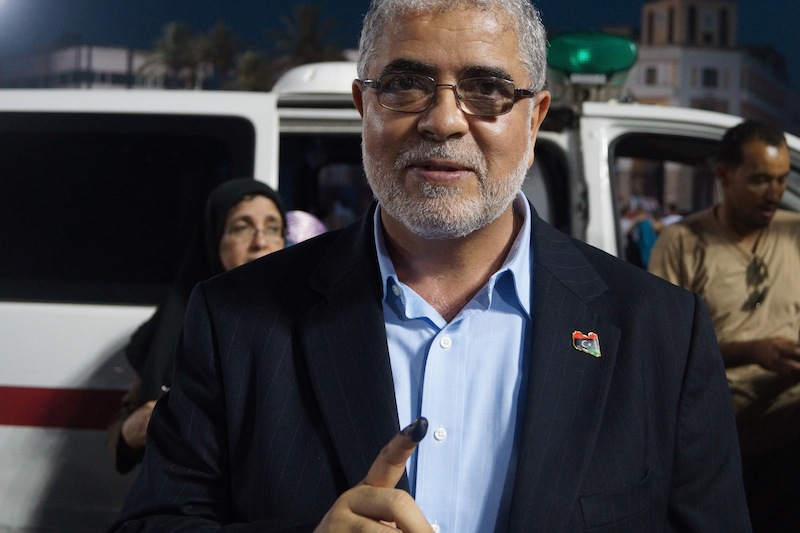
Even if the NFA does prevail, however, this does not necessarily mean it will hold the balance of power in the National Conference. Libya’s complicated voting system has been deliberately designed to prevent an outright majority being obtained by any one party, who are only in contention for 80 of the Conference’s 200 seats.
The remaining 120 seats are reserved for individual candidates, who remain the great unknown of this election. Although clear favourites were emerging in some constituencies over the course of the day, the agendas of many remain unclear.
The extent to which the winners of individual seats choose to congregate around the major political parties in the National Conference could in fact be the most important factor in determining who wields real control after the elections.
[/restrict]


